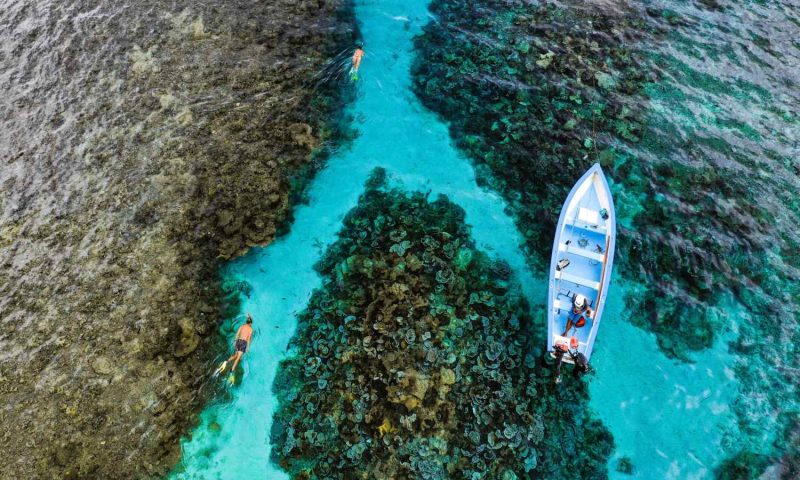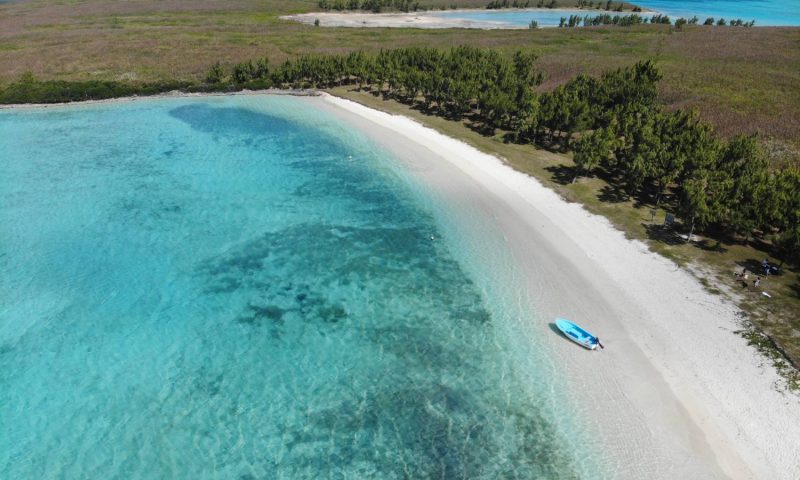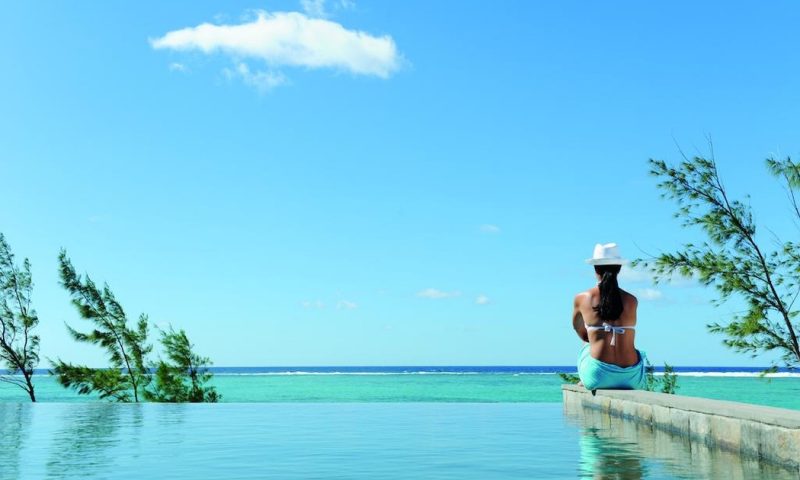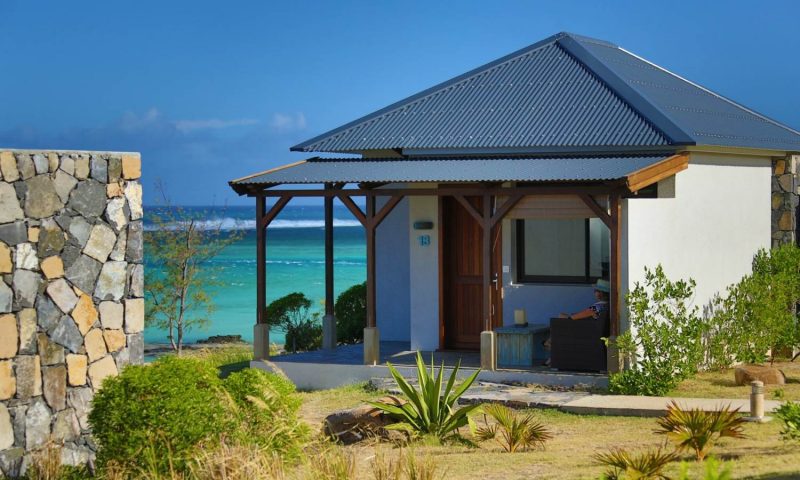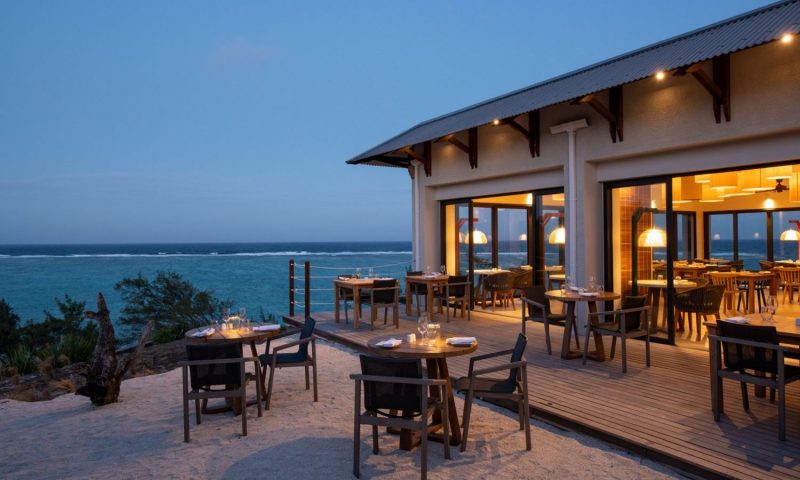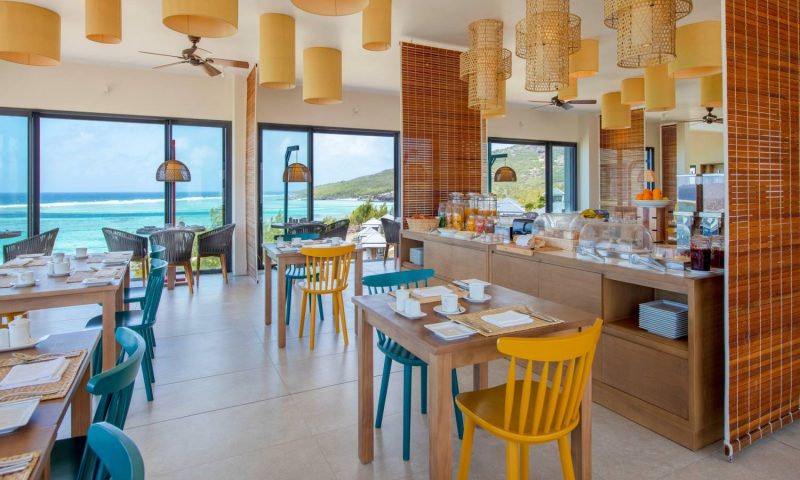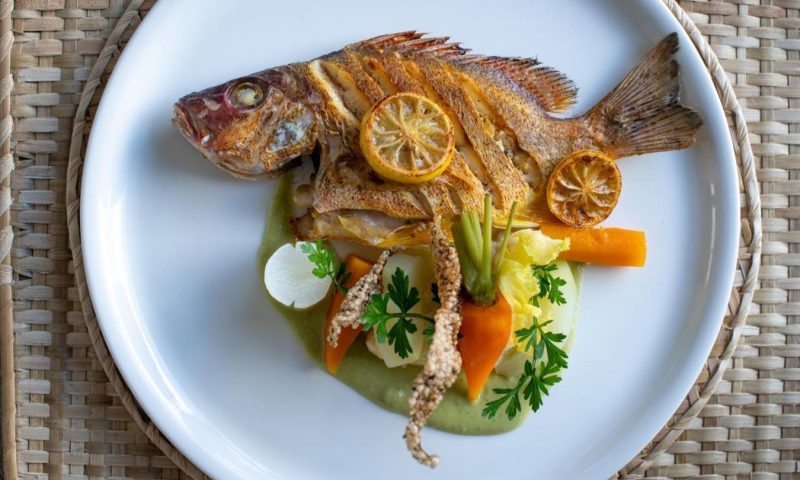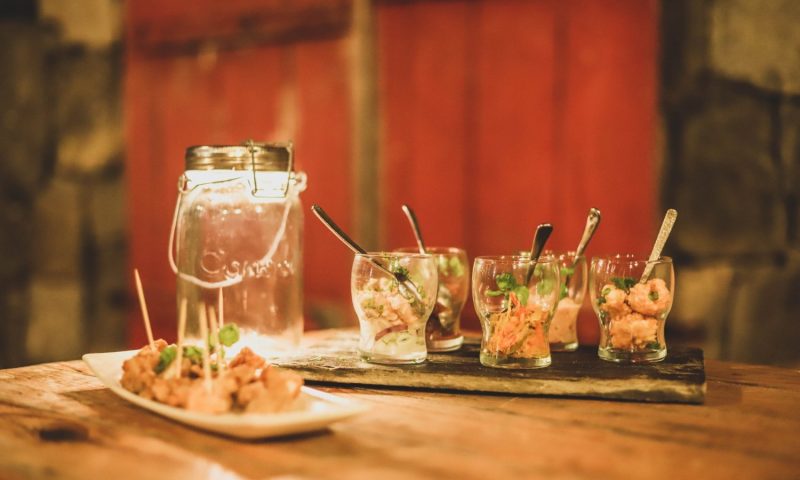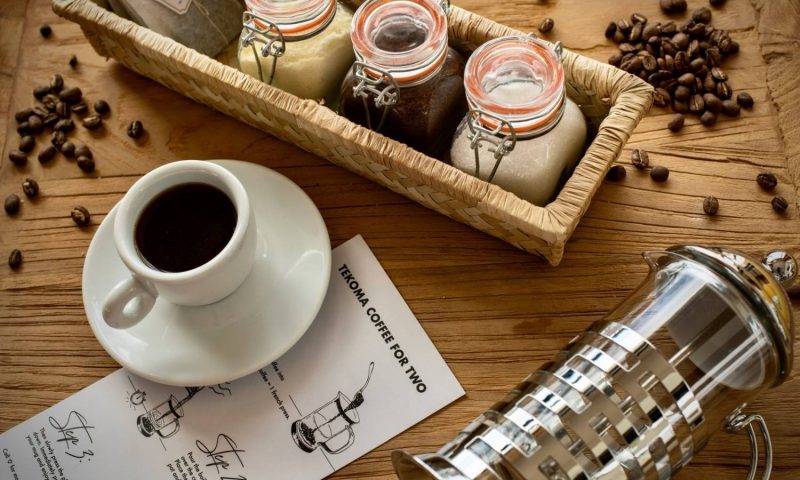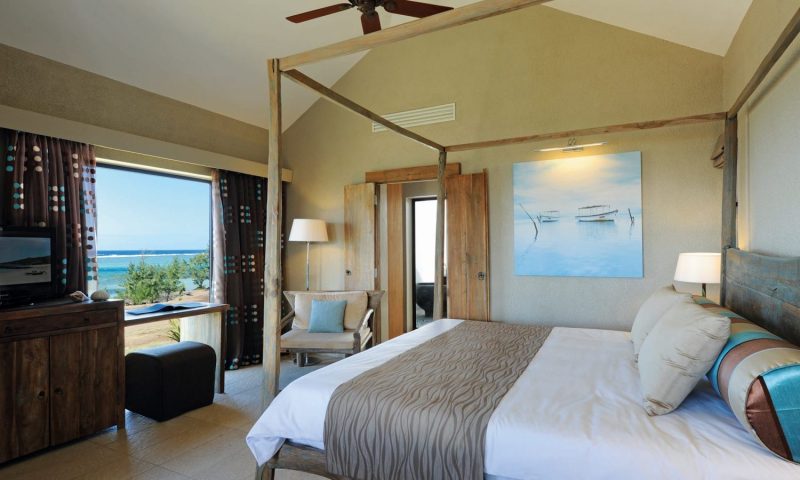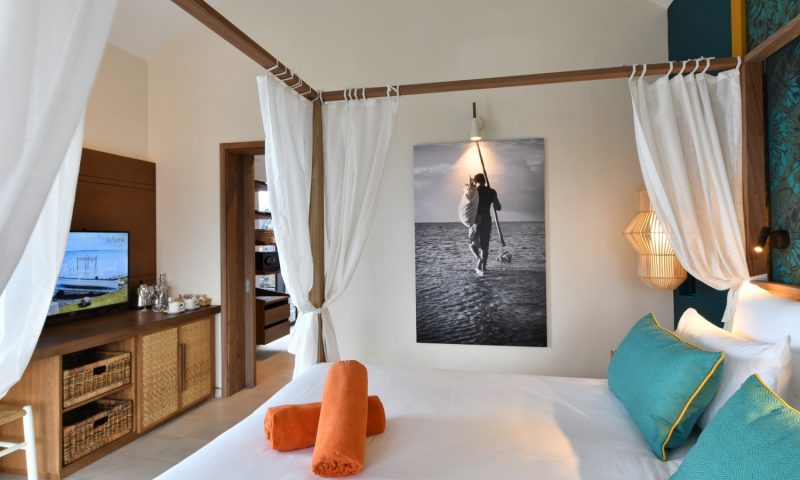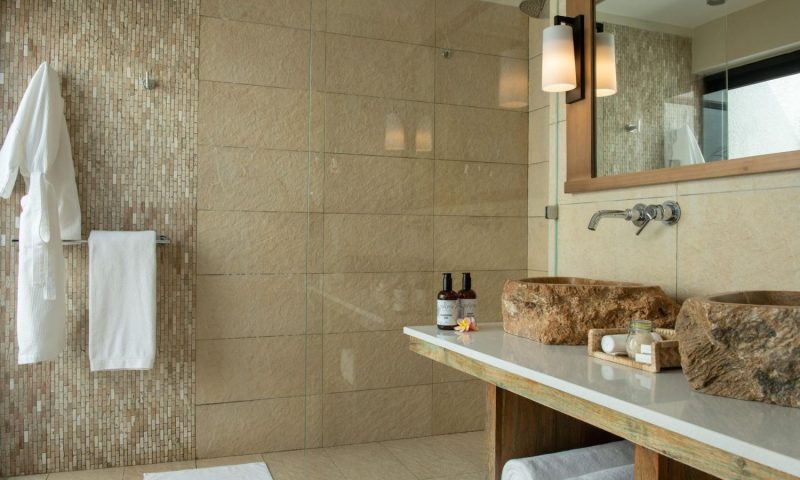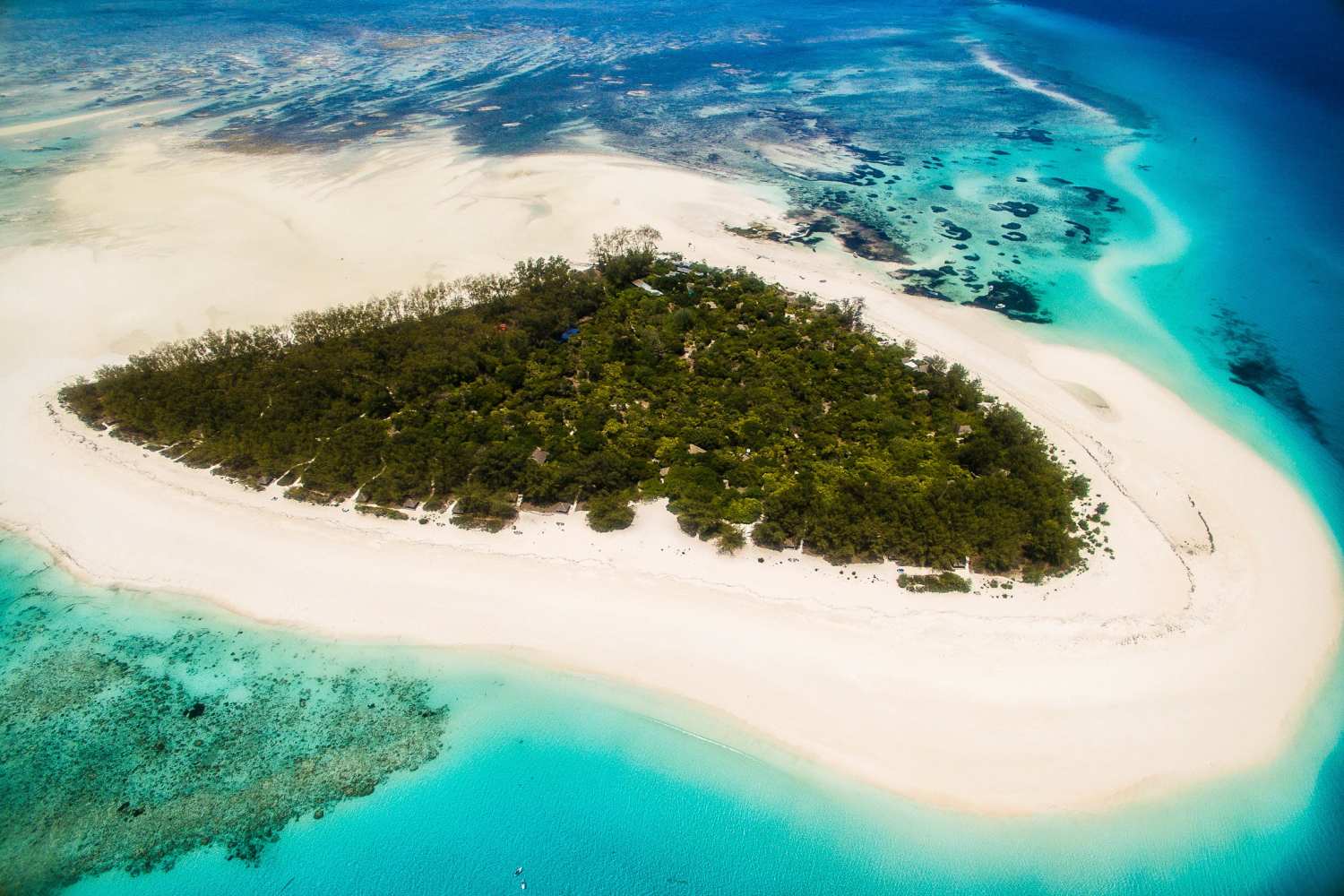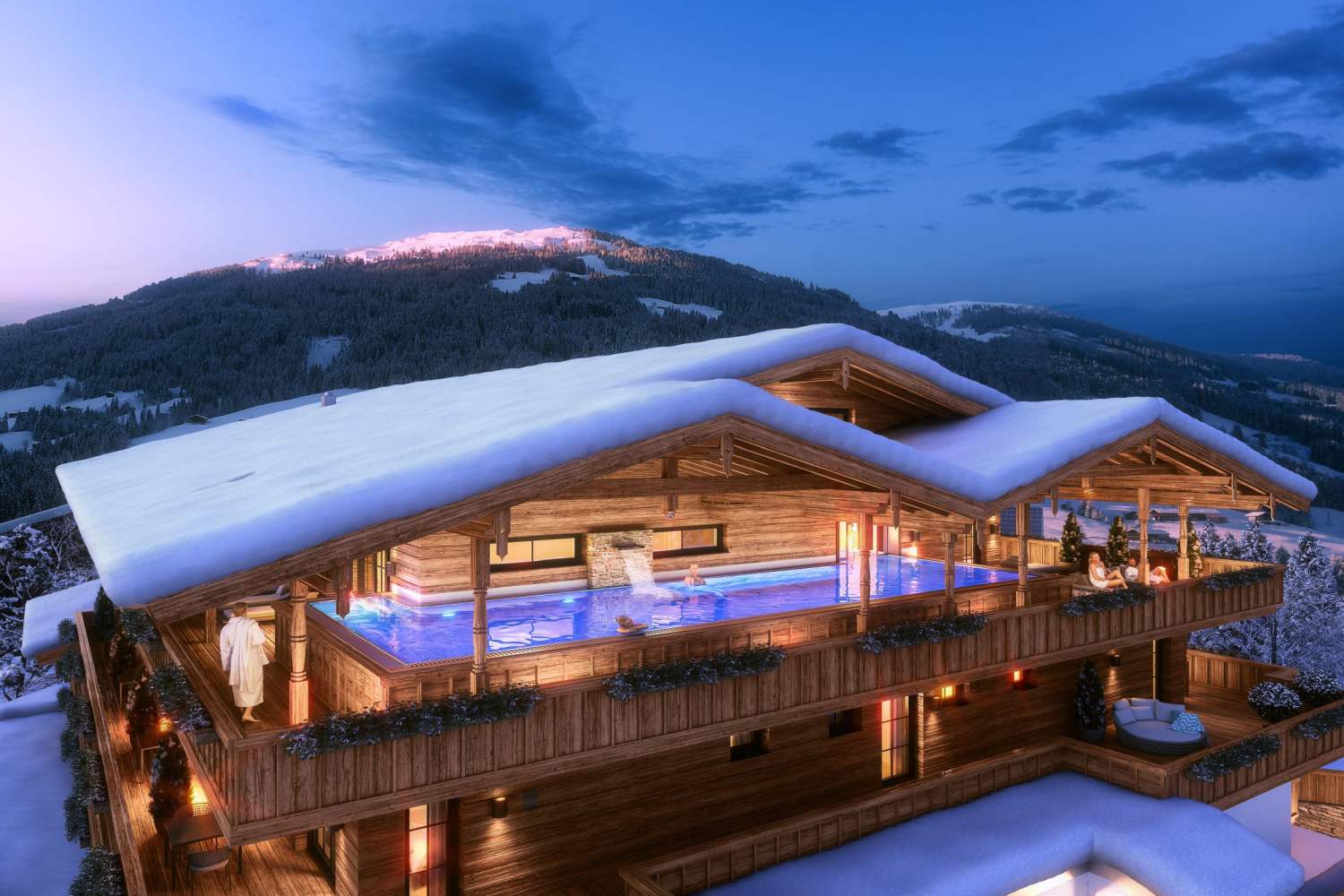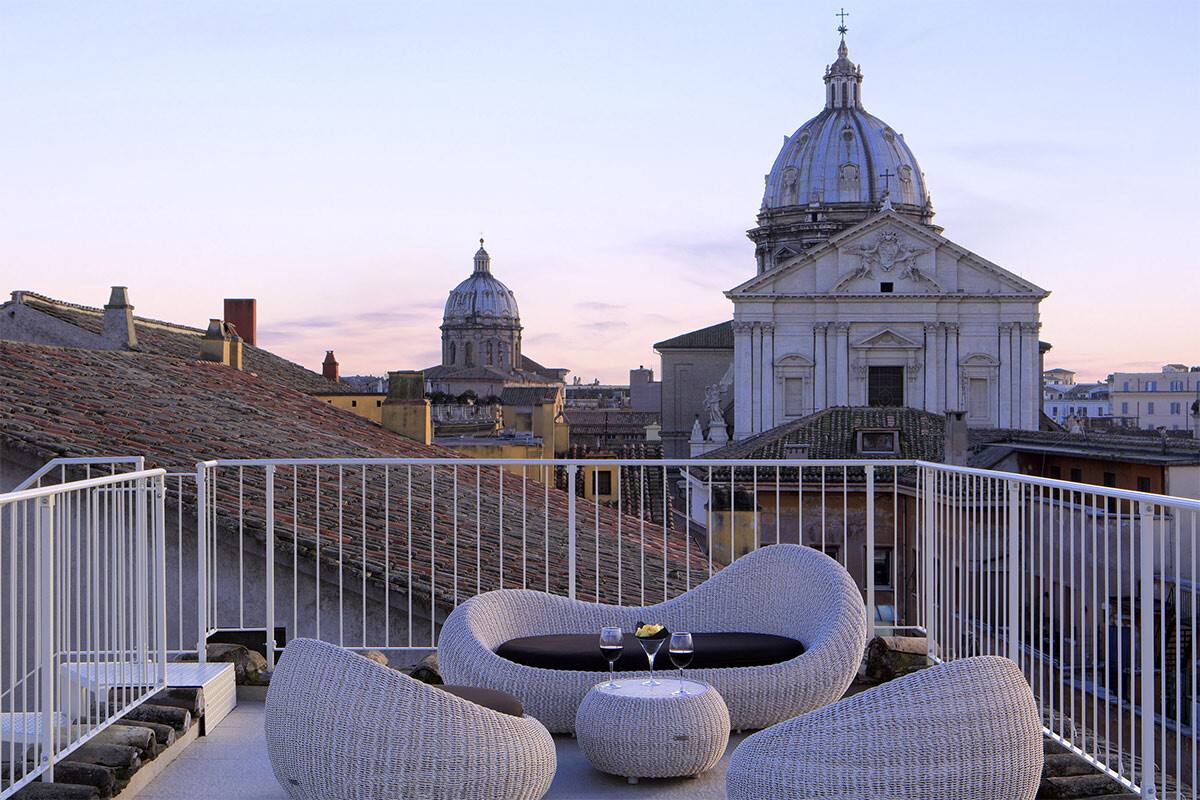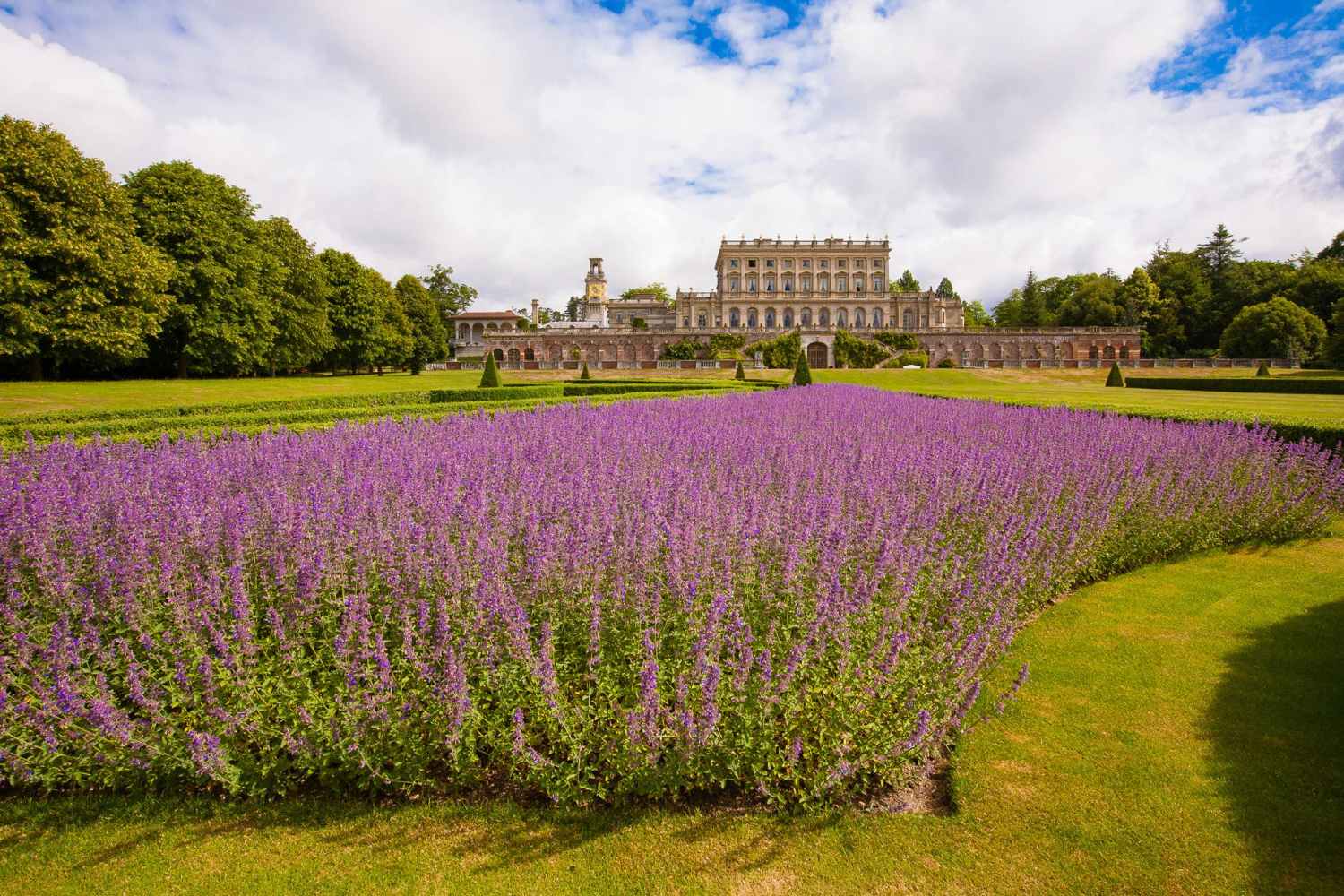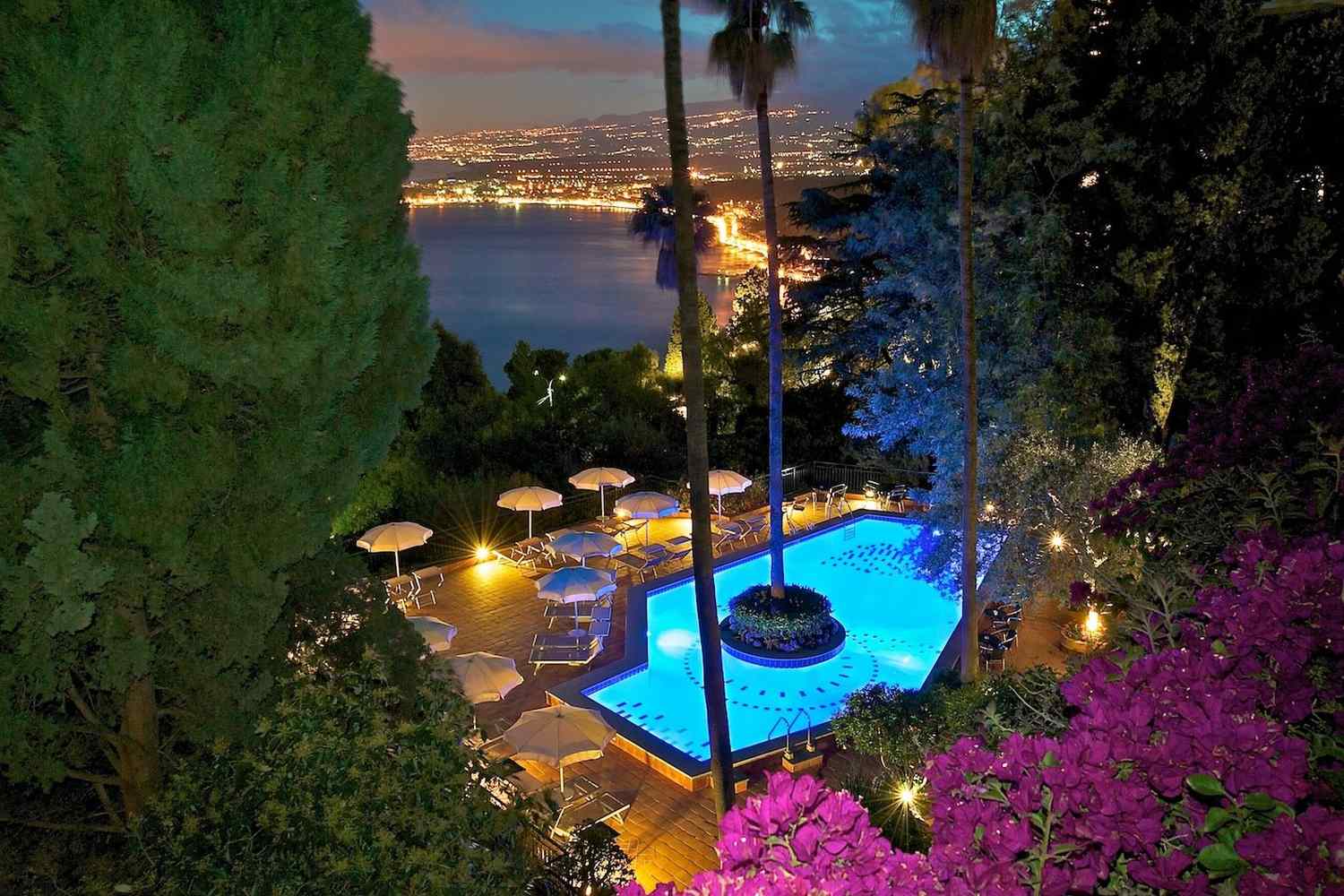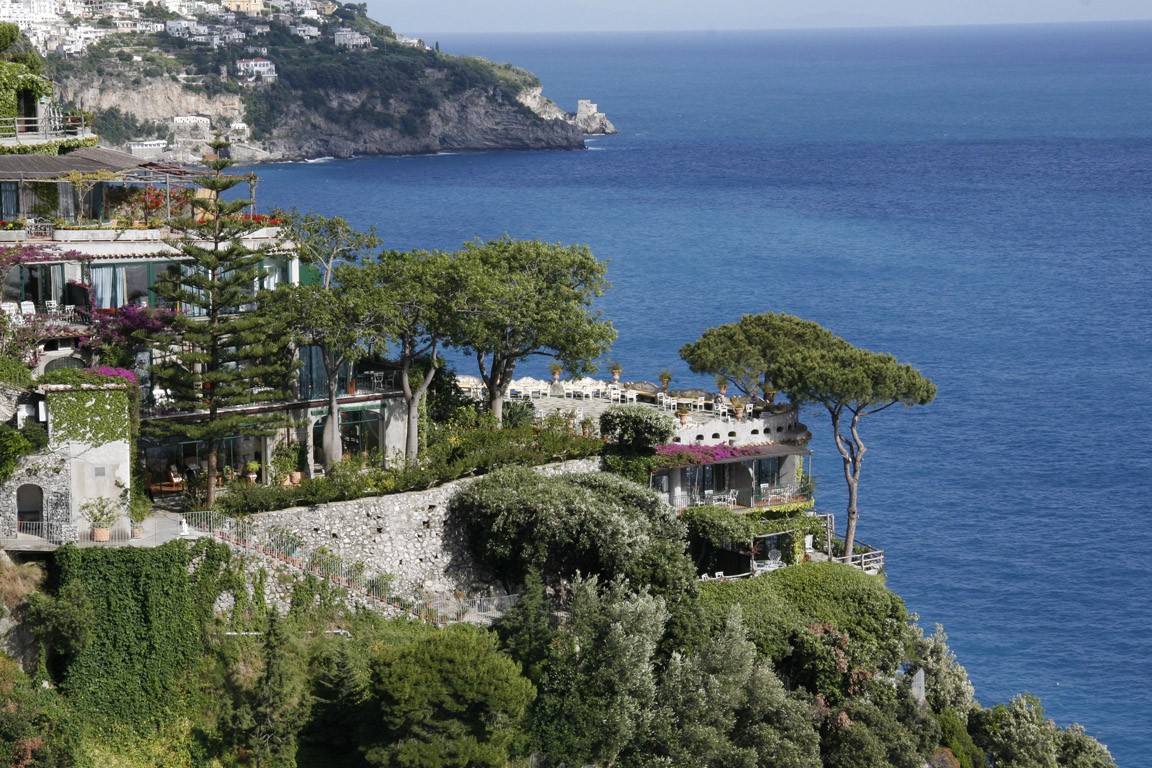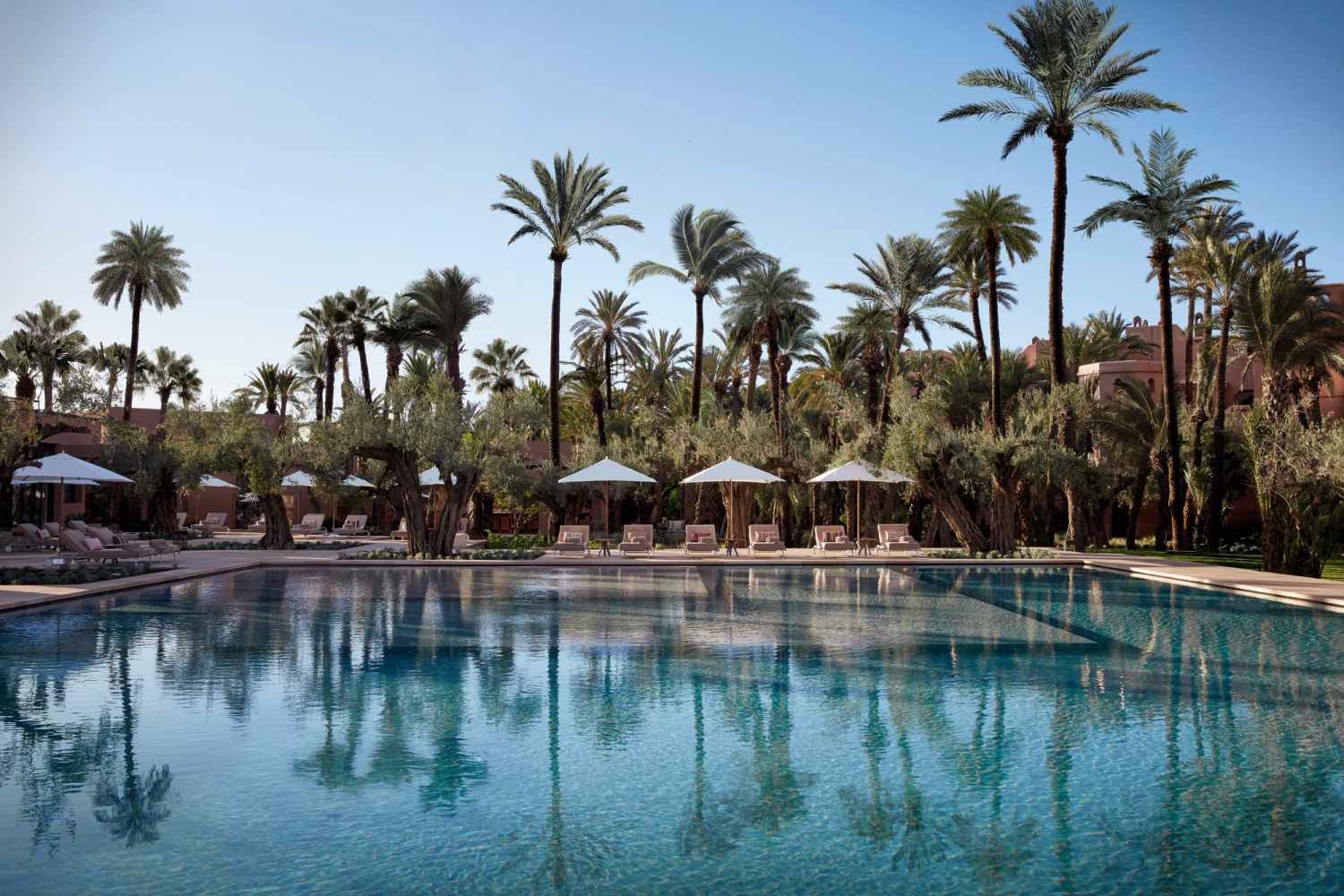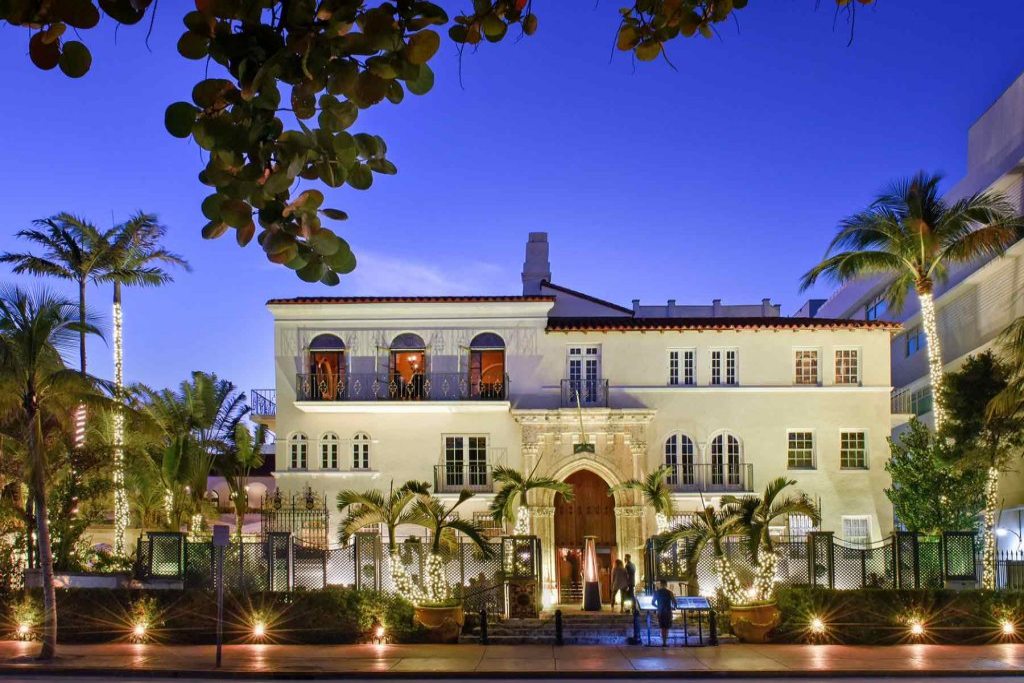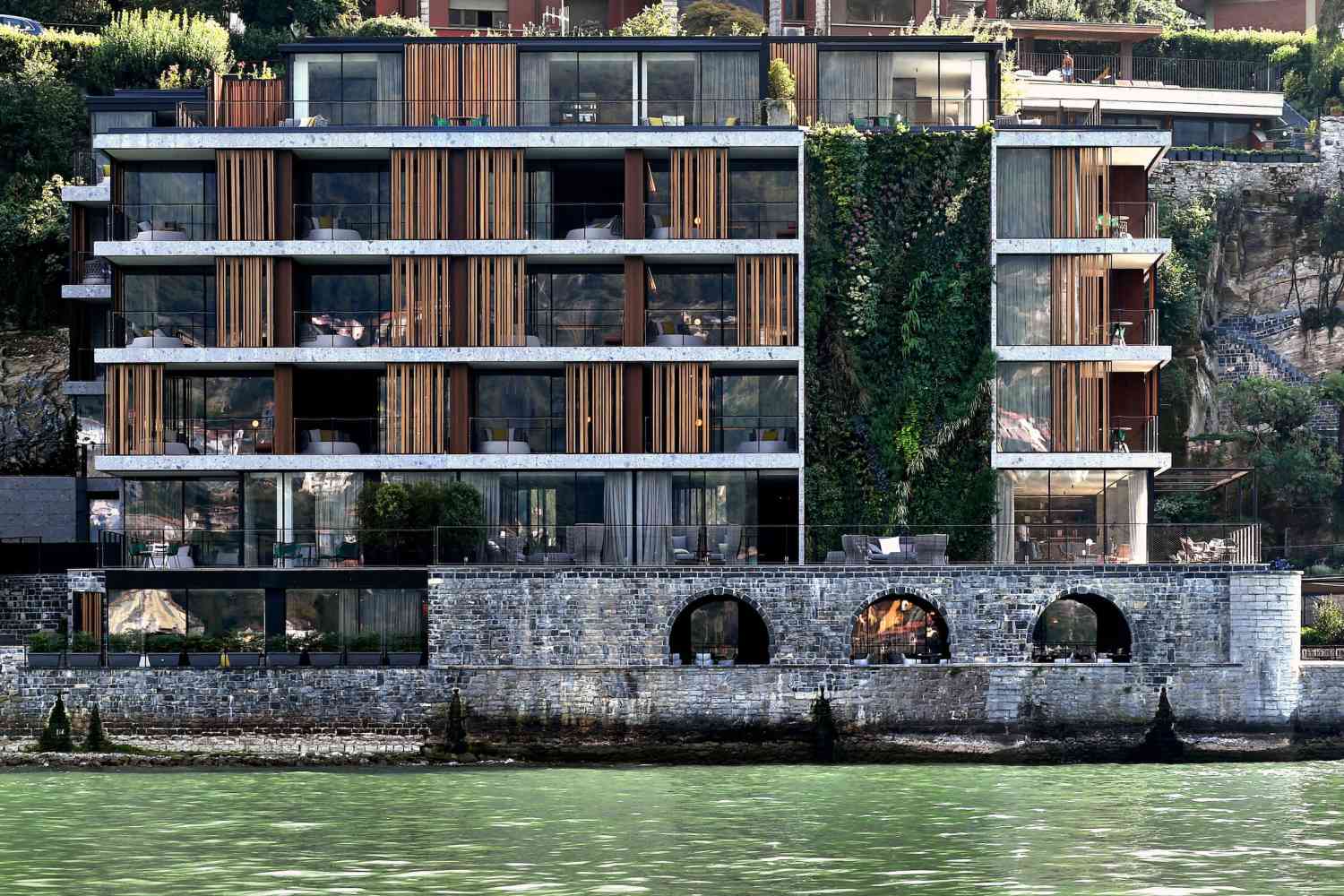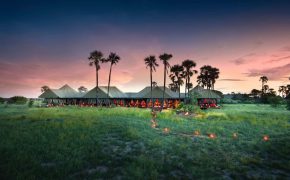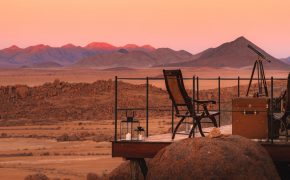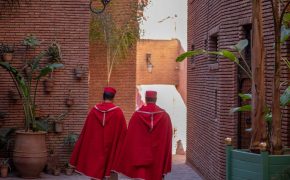The island of Rodrigues leaves an indelible impression on visitors. It has another worldly feel to it and has managed to retain a life-style of earlier, less hectic times.
Tekoma is an invitation to be carried away by the scenery around the hotel, its fine sandy beach, the elegance of its Creole architecture, the little paths near the hotel which lead to Trou d’Argent, the island’s unspoilt beauty and the kindness of its inhabitants.
Tekoma Boutik Hotel is located on the stunning beach of Anse Ally with the Indian Ocean as a horizon. Far from other dwellings, its 32 individual seaview rooms overlook the scenery of Saint-François Bay. This is perhaps where time has followed the French poet Lamartine’s injunction, “Oh Time, suspend your flight ! ”
ROOMS & SUITES
In the middle of an endemic garden and facing a pristine beach, the 32 rooms with sea view, built in individual units, give the visitor the impression of owning his own little Creole-style villa. The rooms are organised in 3 categories, Standard, Superior & Beachfront.
The individual rooms provide more tranquility and privacy with the added bonus of a breathtaking view of the surrounding elements. The open-air bathtub will delight those who want to take advantage, during a bath, of the calm evenings of Rodrigues while looking at the stars of the south hemisphere sky.
TEK TROPICAL DINING & BAR
Fine local cuisine & the indian ocean as a horizon. “I open my eyes and I see the ocean. It is the ocean as I have never seen it before. Free, wild, dizzyingly blue.”
Above is a quote from “Le Chercheur d’Or”, a novel written by French-Mauritian Nobel laureate writer J. M. G. Le Clézio. It illustrates perfectly the breathtaking views that can be admired from Tekoma’s main restaurant & bar. A spectacular panorama of the Indian Ocean and of the Saint-François canal which meanders the immense blue lagoon.
The excellent table of the Rodriguan chef Duvergé Agathe, gifted in the art of combining traditional cuisine with fresh local products, will excite the taste buds. We invite you to discover its already iconic dishes such as the green papaya salad with watercress and salted fish, or the noodles with crab and kaffir lime.
And make sure to discover our Gin Bar with carefully selected spirits & mixers from the Indian Ocean area.
TEKOMA SPA
Tekoma’s guest experience can be defined as “Barefoot Luxury”. It is an invitation to simplicity, relaxation and cocooning in an exceptional setting. This boutique hotel offers a level of comfort and high quality service while keeping this connection to the life and rhythm of the island.
The Spa at Tekoma is open everyday and offers a wide range of treatments using mainly natural & local products. Massages, manicures & pedicures, body scrubs, to be enjoyed alone or with your loved one in our double cabin. Don’t forget that our direct bookers benefit from discounted rates on selected spa treatments.
SUSTAINABILITY
Tekoma has reopened with a more eco-responsible operation. Among many other things, no more single-use plastic, almost exclusively local products used in the kitchen, the water produced by desalination is recycled for watering, and great novelty: the launch of “One Booking, One Tree Planted” in partnership with the François Leguat reserve.
The hotel therefore contributes to the plantation of an endemic species with each reservation, and as a bonus, customers benefit from a 25% reduction on their entry to the reserve.
DISCOVER RODRIGUES (BY BBC ARTICLE)
Marooned 600km north-east of Mauritius, and close to no other landform, Rodrigues is a world unto itself. It is also one of the world’s most remote inhabited islands.
When the plane began its descent into the small volcanic island of Rodrigues the first time I visited, I was convinced that something was wrong. Down below, the Indian Ocean stretched unbroken to the impossibly far horizon. There was no sign of land, let alone a runway large enough to safely put down a 737 aeroplane. Where did the pilot imagine we would land?
I looked around the cabin. No-one was panicking. The locals slept through it, or unconcernedly bounced children on their laps. There was no announcement from the captain, other than to politely ask passengers to fasten their seatbelts and the cabin crew to ready the cabin for landing. Breathe.
It was 10, perhaps 15 long minutes before something, anything, interrupted the monotony down below: an arc of white waves, kilometres long, broke not upon land but upon the ocean itself. Then, finally, Rodrigues, and its sleepy little airport at the western end of the island, came into view.
Nothing can prepare you for the first time you arrive in Rodrigues. Marooned 600km north-east of Mauritius, to whom it belongs, and close to no other landform, Rodrigues is a world unto itself. It is also one of the world’s most remote inhabited islands.
When seen from above on the western approach, Rodrigues is a strange and beautiful place of tightening, then widening, concentric circles of ocean, lagoon and land. The waves mark Rodrigues’ outer limits, encircling a lagoon of near-perfect aquamarine.
In turn, the lagoon encircles the main island, a long spine of green fringed with beaches and shadowed by smaller islands. The island rises to its eastern summit before sinking back into the lagoon. Then the waves once again announce the resumption of the eternal horizon.
If Rodrigues were a prison, it would be impossible to escape. But isolation has always been Rodrigues’ friend, protecting it from the world and its noise.
Rodrigues entered recorded human history in 1528 when the first ships arrived. No-one lived on the island back then and if the crew of any passing ships had come ashore here prior to this date, they left no record of their passing. Rodrigues lay too far south and too far east of the busy trade routes and trade winds that connected East Africa with Arabia and Asia.
Even when Portuguese, Dutch and French ships, blown way off course, sheltered on Rodrigues intermittently through the 16th Century, they stayed only long enough to replenish their food supplies. Most often, this meant giant tortoises and the solitaire, a fatally plump bird that sailors quickly drove to extinction, just as they had the dodo on Mauritius.
In 1691, Frenchman François Leguat arrived on the island with seven Huguenots, fleeing religious persecution by France’s Catholic government. In his account of his arrival, Leguat wrote that Rodrigues had so many giant tortoises that “one can take more than 100 steps on their shell without touching the ground”.
Leguat and his exiles planned the first colony on Rodrigues, but the remote location (and lack of women) was too much for them: after two years, unable to bear the isolation any longer, they built a boat from driftwood and fled the island, never to return.
These days, Rodrigues’ distance from the rest of the world is central to its charm. In pre-Covid times, nearly 1.5 million tourists visited Mauritius every year. Barely 90,000 of these (less than 6%) travelled to Rodrigues.
Those that did come found an island that carries echoes of Mauritius before tourists began arriving.There are no traffic jams on the island. Nothing happens in a hurry. Crime is almost non-existent.
“Rodrigues is a very safe place,” said Françoise Baptiste, one of Mauritius’ best-known chefs, who has lived on Rodrigues for 54 years. “Whenever it’s warm, which is often, we sleep with our doors open.”
Part of that sense of safety and security comes from the quiet familiarity of the place. Rodrigues has a population of fewer than 45,000 people. Unlike the melting pot demographics of Mauritius’ main island, Rodrigues is 90% Creole, its inhabitants carrying in their past a mosaic of traces from African slaves and European settlers. “We inherited sega dancing from Africa, afternoon tea and bacon from the English and pastries from the French,” said Baptiste.
“Rodrigues is a village,” added Laval Baptiste, businessman and Françoise’s husband. “Everybody knows everybody.” And while they often have to travel to the main island of Mauritius, Françoise and Laval always long for the languid lifestyle of their home island. “We are always very happy to come back after a few days of rushing around,” Laval said.
Even Rodrigues’ capital, Port Mathurin, rouses into life only occasionally – a five-minute rush hour; a flurry of minor activity whenever a ship arrives in port; the Saturday market that is all but deserted by 10:00.
From Port Mathurin, the road meanders along the north coast, heading nowhere in particular, past the tiny settlement of Anse aux Anglais, offering up still waters and sunset views like the Earth’s calm exhalation at the end of a perfect day.
In the island’s west, an ambitious project at François Leguat Reserve aims to restore a stretch of the island that slopes gently down to the lagoon’s shore. Over the centuries, settlers and visiting sailors drove the island’s tortoises to extinction and cut down most of the trees.
In recent years, those running the reserve have set the ambitious target of restoring this corner of the island to resemble, as closely as possible, how Rodrigues appeared in the 17th Century, before Leguat and his Huguenot friends arrived. To this end, they have brought in giant tortoises from elsewhere in the Indian Ocean and planted more than 100,000 trees indigenous to Rodrigues.
Along the west coast, close to the promontory known as Pointe du Diable, wooden frames often line the narrow roadside, from which ghostly white octopus limbs sway in the ocean breeze. Octopus is a centrepiece of Rodrigues culture and a staple of the Rodrigues table, to the extent that, said Laval, “Each Rodriguan will eat octopus two or three times a week.”
Fishing for octopus is “mostly practiced by women who are unemployed”, Françoise added. “They do it early in the morning. This way they have time to do house duties afterwards and contribute to the family budget at the same time.”
Caught with a harpoon at low tide in the coral shallows of Rodrigues’ lagoon, octopus is something of an island obsession, so much so that the island’s authorities have felt compelled to secure the future of their national dish, a fragrant octopus curry, by putting measures in place to prevent overfishing.
No-one may fish for octopus from February-March or September-October. During these months, said Laval, octopus fishers are paid by the local authorities not to fish by doing other work, including cleaning local beaches.
At the opposite end of the island, in the tiny hamlet of St François, is Chez Robert et Solange. In this ramshackle beach shack with ramshackle Rodrigues charm, they serve up octopus every which way – grilled octopus, octopus curry, octopus and papaya salad – as well as lobster and other fresh seafood.
Every time I visit Rodrigues and go to Chez Robert, I pretend to study the menu. I ask what’s fresh. And I spend long moments, as if lost in thought, staring out to sea through the palm trees. Then, in what feels like a Rodrigues rite of passage, I order the octopus. Each time I do so, I feel like I’ve arrived on Rodrigues for the very first time.
